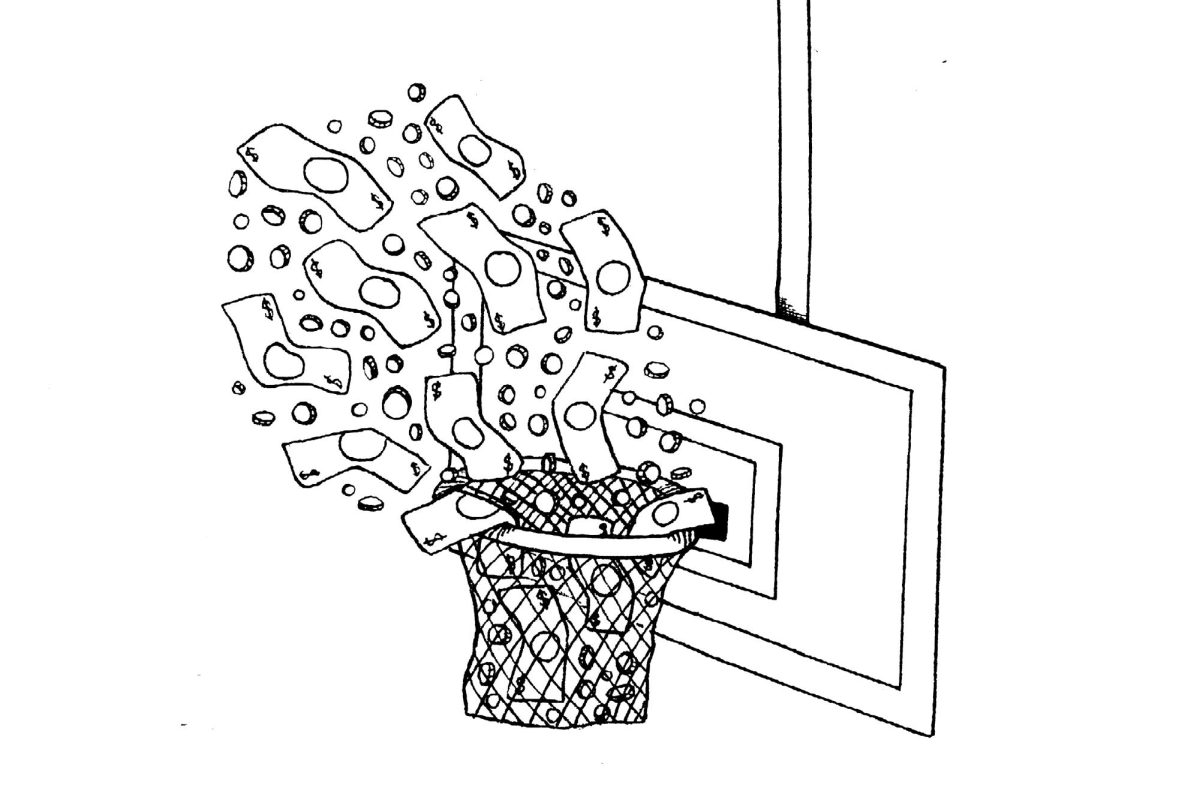I’ve lived in the United States as a green card holder for five years without the ability to vote. I live under a government I have no say in. As a child and young adult, all I wished was to be able to vote. This is why people choosing to abstain from voting in this upcoming presidential election for the series of excuses they make is completely incomprehensible to me.
When Roe v. Wade was overturned, I felt powerless without the right to vote, like there was nothing I could do. Instead of voting, I started to bring this issue into conversations and continued to encourage people to vote and protect basic rights like abortion. I had a similar issue with American immigration policy. Watching the growing humanitarian crisis and separation of families at the southern border has hit close to home. I feel fortunate enough that my family has been able to establish ourselves in the U.S., despite having our fair share of inhumane dealings with immigration agents. Because I can’t vote, I feel like spreading awareness about the horrible reality for other people at the southern border is the only thing I can do but that only addresses a certain extent of what needs to be done.
Many people don’t understand the gravity behind voting for policies and candidates and the power a person holds with one ballot. When people don’t vote, they risk allowing other voters to elect candidates with priorities that clash with the ideals of the people — a phenomenon especially visible when Roe v. Wade was overturned. With the right to vote, people have the power to elect people who reflect their beliefs and values and will shape legislation in the coming years. It is a privilege many don’t understand unless they lose it or never receive it altogether.
There are millions of U.S. residents who can’t vote because they aren’t citizens. The people who can vote are the only ones who can represent us. This is exactly why you shouldn’t turn away from politics and why you should double down and demand more.
Mail-in ballots are options for people who aren’t able to vote in-person in their state. Right now, many states make voting very accessible, but that is slowly changing as southern states tighten access to absentee ballots, making it harder for out-of-state voters or those with disabilities or illnesses to go out and vote — and potentially eliminating a whole demographic of both young generations and older voters.
And just because your home state may swing politically one way doesn’t mean your vote doesn’t count. People like me are the reason why your vote matters. When people say they won’t vote for a myriad of excuses, like not having enough time or their vote being inconsequential, it feels like they are saying they don’t care about this country and the people in it. No one says you have to understand everything going on in our government to vote. You just have to know what’s important to you and your community and then pick the person you think will best achieve those priorities. That’s the cool thing about voting: it’s for everyone — well, almost everyone.
Presidential elections aren’t the only thing people should be voting in. Local elections are equally as vital because of their greater effect on smaller communities. These elections aren’t talked about as much and have a much lower voter turnout because they are more complicated and information-dense, but this year, many of these elections have state-specific ballot measures about reproductive rights and immigration issues that directly affect residents. States and individual districts can switch from red and blue from election to election, all based on our votes.
There are candidates I have developed my opinion on, and I have policies which I would like to vote for. Unfortunately, this means nothing. My family and I have to watch from the sidelines and leave our rights in the hands of eligible voters, who may or may not decide to turn out at the polls on Election Day. I have to trust that people will make their voices heard and choose the candidates and policies that will protect my reproductive rights and ensure the people at the border get a second chance.
I don’t have the power to make a change other than encouraging others to observe their duty in our participatory democracy. Vote for the people who don’t have a voice.
Alexia Green, a first-year majoring in journalism, is an opinions writer.


